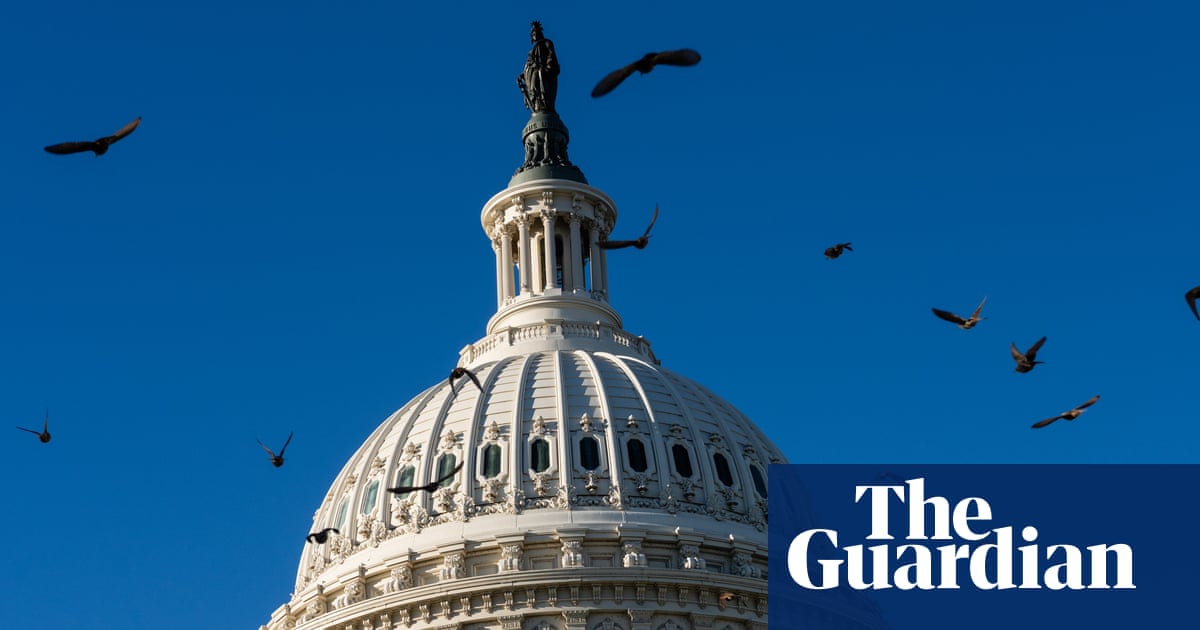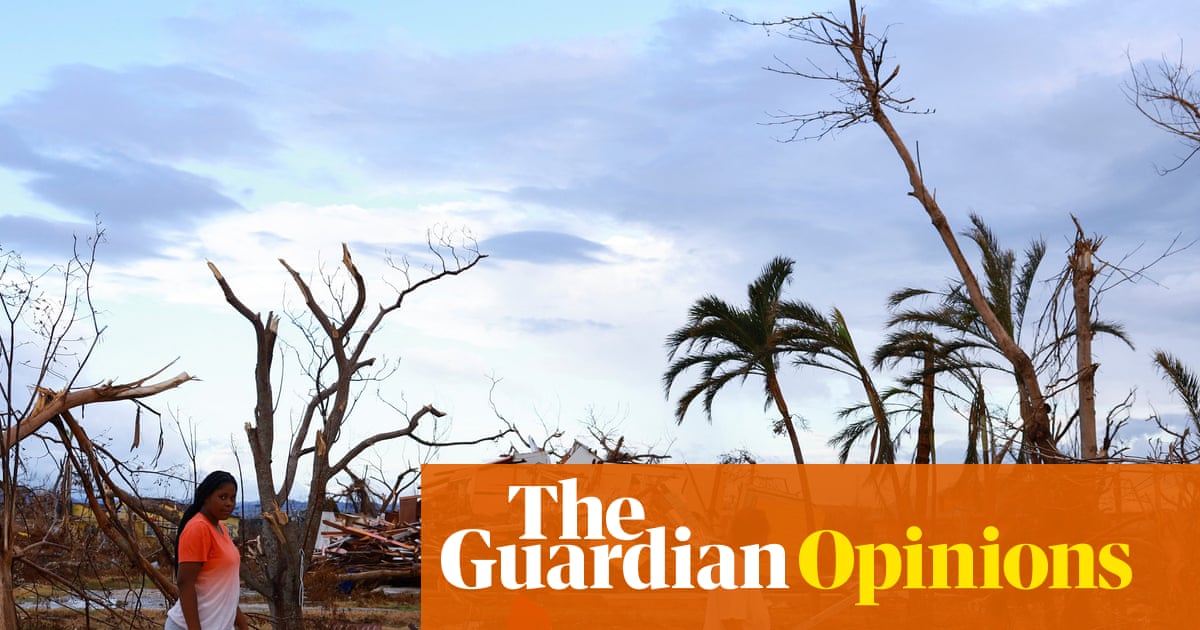Ever since Donald Trump began his second presidency, he has used an “invented” national energy emergency to help justify expanding oil, gas and coal while slashing green energy – despite years of scientific evidence that burning fossil fuels has contributed significantly to climate change, say scholars and watchdogs.
It’s an agenda that in only its first six months, has put back environmental progress by decades, they say.
Trump’s skewed and unscientific energy priorities have come even as climate-change related weather disasters from huge floods in Texas to giant California fires have increased, and as Trump regulators are clamping down on spending for alternative fuels and weather research.
As the death toll from the Texas floods rose to over 100 on 7 July, Trump signed an executive order that added new treasury department restrictions on tax subsidies for wind and solar projects.
That order came days after Trump signed his One Big Beautiful Bill Act, which included provisions to gut big tax credits for green energy contained in the 2022 Inflation Reduction Act legislation Congress passed during Joe Biden’s presidency
In another oddly timed move, underscoring the administration’s war on science, its proposed budget for the coming fiscal year would shutter 10 labs that the National Oceanic and Atmospheric Administration runs – specifically ones that conduct key research on ways weather changes are affected by a warming earth.
Trump also signed four executive orders in April to help revive the beleaguered and polluting coal industry, which he and key cabinet members touted more at Carnegie Mellon University in Pittsburgh as they promoted plans by private companies to spend $92bn on AI projects and expand coal and natural gas in Pennsylvania.
The blinkered focus that Trump and his key regulators place on their energy policies reflect the administration’s denigration of science, while posing dangers to public health and scientific progress. And, critics say, this is all happening as university research and government labs face big cutbacks in funding and staff.
Trump has pushed for more fossil-fuel production, rhapsodized about “beautiful coal”, dubbed climate change a “hoax” and invoked his “drill, baby, drill” mantra to promote more oil and gas projects after receiving $75m in campaign donations in 2024 from fossil-fuel interests.
Scholars have hit out at the administration for firing hundreds of scientists and experts working on a major federal report detailing how climate change is impacting the country. The administration has also systematically deleted mentions of climate change from federal websites while cutting back funds for global warming research.
“Trump’s actions are a patent attempt to roll back decades of environmental progress, not because it makes any sense, economically, but because it does two things that Trump wants,” Naomi Oreskes, a Harvard historian of science, told the Guardian
“First, it helps his cronies in the oil, gas and coal industries, who we know he met with a Mar-a-Lago before the election, and who gave substantial sums to his election campaign.”
Oreskes said it’s also “part of a larger attempt to deny the credibility of environmental protection, tout court”.
“Look at Trump trying to force uneconomic coal fired power plants to stay open,” she continued. “That makes no economic sense, and defies the principles of free market economics that Republicans claim to support. But like the guys who jack up their trucks to make more pollution, Trump is trying to deny the necessity and credibility of environmental concerns.”
Oreskes stressed that much of the science Trump “is in the process of destroying forms the basis for environmental and public health protection in this country: the National Oceanic and Atmospheric Administration, the US Geological Survey and the EPA, plus all the federally funded science at universities across the country, including my home institution, Harvard. None of this makes economic sense.”
Many scientists echo Oreskes’s concerns as do Democratic attorneys general, who filed a lawsuit in May challenging the legality of the Trump administration’s declaration of a national “energy emergency” to justify its radical policies.
Meanwhile, regulatory and spending shifts at the Environmental Protection Agency, including staff and research cuts, have revealed the administration’s disregard for scientific evidence – particularly about climate change and its adverse economic effects.
In response to the cuts and policy shifts, a total of 278 EPA employees signed a letter in July denouncing the agency’s politicization and decrying policies that “undermine the EPA mission of protecting human health and the environment”. The EPA then put 144 of the employees who signed their names to the letter on leave for two weeks while an “administrative investigation” was conducted.
“This isn’t quite at the level of the 17th-century church’s persecution of Galileo for saying the Earth goes around the Sun, but it’s in a similar spirit of ideology trying to squelch science,” Michael Gerrard, who heads the Sabin Center for Climate Change Law at Columbia University, told the Guardian.
“Trump’s use of an invented ‘energy emergency’ to justify more fossil-fuel production defies not only physics but arithmetic. The numbers show that the US is producing more oil and gas than any other country, and that Trump’s actions in knifing the wind and solar industries will raise the energy prices paid by US consumers.”
Gerrard stressed too that, on the Texas flooding, “the lack of sufficient warnings highlight how short-sighted are Trump’s drastic cuts to the National Weather Service and other federal scientific work”. He added it was “especially so since climate change is intensifying extreme weather events, and Trump’s attacks on green energy and support of fossil fuels will make those worse”.
Such criticism has not seemed to faze Trump or top agency appointees like EPA administrator Lee Zeldin.
Last month, 1,500 staffers who work in EPA’s office of research and development (ORD) were told in a staff meeting that they would have to apply for about 400 new posts in other EPA offices. What will happen to employees who don’t land new positions is unclear.
“Gutting the … [ORD] is a loss for health,” warned Laura Kate Bender, assistant vice-president of nationwide healthy air at the American Lung Association.
Further experts and watchdogs have stressed that the health of millions of Americans was threatened by Zeldin’s May announcement of plans to cut its budget by $300m in fiscal year 2026 – a move that’s part of a makeover to reduce spending levels to those of the 1980s under Ronald Reagan.
In response to the cuts and policy shifts, 278 EPA employees signed a letter in July denouncing the agency’s politicization and decrying policies that “undermine the EPA mission of protecting human health and the environment”. The EPA then put 144 of the employees who signed their names to the letter on leave for two weeks while an “administrative investigation” was conducted.
On Friday, the EPA doubled down on the cuts and say it would be reducing its entire workforce by at least 23% through voluntary retirements and layoffs.
Gerrard noted that the administration’s misguided energy moves and rejection of science are having enormous societal costs: “Laboratories are being shut down around the country, experiments that might be on the cusp of great discoveries are being halted, and young aspiring scientists are rethinking their career paths. Other countries are recruiting US scientists and offering them friendlier environments.”
Looking ahead, Oreskes, too, warns that the Trump administration’s denigration of science will do long term damage to public health, the environment and scientific progress
“The scientific agencies that Trump is destroying, such as the National Weather Service, save the American people and American business billions of dollars in avoided property damage and health costs,” she said.
“But if you want to deny the true costs of climate change, then you may be motivated to destroy the agency that documents these costs [Noaa]. And if you want to deny the need for environmental and public health protection, then an effective way to do that is to destroy the scientific agencies and academic research that for decades have proven that need.”

 3 months ago
61
3 months ago
61

















































